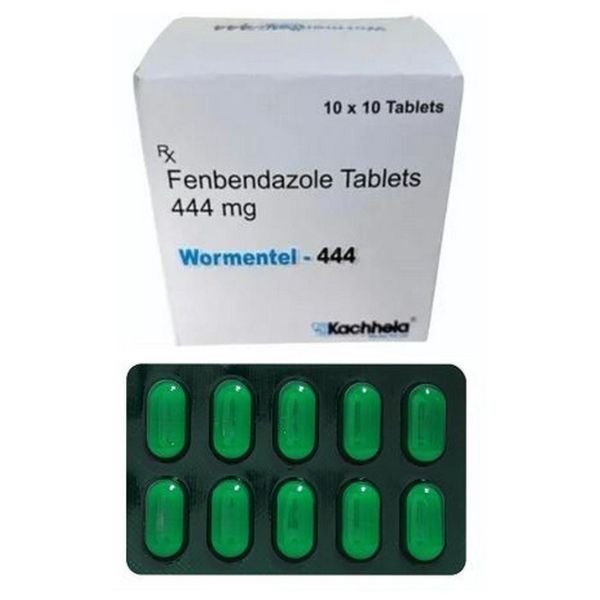Iverheal 12 (Ivermectin) for Parasites: Benefits, Dosage, and Side Effects
Are you struggling with persistent parasitic infections that seem resistant to conventional treatments? 🦠 Iverheal 12, containing the powerful antiparasitic agent ivermectin, might be the solution you’ve been searching for. This groundbreaking medication has been making waves in the medical community for its remarkable effectiveness against a wide range of parasites.
But with great power comes great responsibility. While Iverheal 12 offers promising benefits, it’s crucial to understand its proper usage, potential side effects, and who should (or shouldn’t) use it. 💊 In this comprehensive guide, we’ll dive deep into the world of Iverheal 12, exploring its benefits, dosage recommendations, and everything you need to know to make an informed decision about this treatment option.
Ready to unlock the secrets of Iverheal 12 and discover if it’s the right choice for you? Let’s embark on this journey together, starting with a closer look at what Iverheal 12 is and how it works against parasitic infections. 🔍
Understanding Iverheal 12 (Ivermectin)
What is Iverheal 12?
Iverheal 12 is a brand name for the antiparasitic medication Ivermectin. It’s a versatile drug primarily used to treat various parasitic infections in humans and animals. Iverheal 12 contains 12mg of Ivermectin per tablet, making it a potent formulation for addressing a wide range of parasitic conditions.
How does Ivermectin work against parasites?
Ivermectin’s mechanism of action is highly effective against parasites:
- Interferes with parasite nervous system
- Causes paralysis and death of parasites
- Prevents reproduction of parasites
- Enhances the body’s immune response
This multi-faceted approach makes Ivermectin a powerful tool in combating parasitic infections, often leading to rapid improvement in symptoms and overall health.
Types of parasites treated by Iverheal 12
Iverheal 12 is effective against a variety of parasites, including:
- Intestinal worms (e.g., roundworms, threadworms)
- Skin parasites (e.g., scabies mites, head lice)
- River blindness-causing parasites
- Lymphatic filariasis parasites
Its broad spectrum of activity makes Iverheal 12 a valuable medication for treating both common and rare parasitic infections. As we explore the benefits of Iverheal 12 in the next section, you’ll gain a deeper understanding of why this medication is so crucial in the fight against parasitic diseases.
Benefits of Iverheal 12
Now that we understand what Iverheal 12 is, let’s explore its numerous benefits for treating parasitic infections.
Effective treatment for various parasitic infections
Iverheal 12, containing Ivermectin, is a powerful antiparasitic medication that effectively combats a wide range of parasitic infections. It’s particularly effective against:
- Onchocerciasis (river blindness)
- Strongyloidiasis
- Scabies
- Head lice
- Ascariasis
Rapid relief from symptoms
One of the most significant advantages of Iverheal 12 is its ability to provide quick relief from debilitating symptoms. Patients often experience a noticeable reduction in itching, skin irritation, and other parasite-related discomforts within days of starting treatment.
Improved quality of life for patients
By effectively eliminating parasitic infections, Iverheal 12 significantly enhances patients’ overall well-being. It helps prevent serious complications associated with untreated parasitic infections, such as vision loss in the case of river blindness or severe gastrointestinal issues in strongyloidiasis.
Cost-effective compared to alternative treatments
Iverheal 12 offers a cost-effective solution for treating parasitic infections. Its broad-spectrum activity means that a single medication can address multiple parasitic issues, potentially reducing the need for multiple treatments and lowering overall healthcare costs.
With these benefits in mind, it’s crucial to understand the proper dosage and administration of Iverheal 12 to maximize its effectiveness and minimize potential side effects.
Proper Dosage and Administration
Recommended dosage for different parasitic infections
The dosage of Iverheal 12 varies depending on the specific parasitic infection being treated. Here are some common recommendations:
- Strongyloidiasis: 200 mcg/kg as a single dose
- Onchocerciasis: 150 mcg/kg as a single dose
- Scabies: 200 mcg/kg as a single dose, often repeated after 1-2 weeks
- Head lice: 200 mcg/kg as a single dose, repeated after 7 days
Factors affecting dosage (age, weight, health condition)
Several factors influence the appropriate dosage of Iverheal 12:
- Body weight: Dosage is typically calculated based on kg of body weight
- Age: Children may require adjusted dosages
- Liver function: Patients with impaired liver function may need dose adjustments
- Severity of infection: More severe cases may require higher doses or longer treatment
How to take Iverheal 12 correctly
To ensure maximum effectiveness:
- Take Iverheal 12 on an empty stomach with water
- Follow your doctor’s instructions precisely
- Avoid alcohol consumption during treatment
- Do not chew or crush the tablets; swallow them whole
Duration of treatment
The duration of Iverheal 12 treatment depends on the parasitic infection being addressed:
- For most infections, a single dose is sufficient
- Some conditions, like scabies, may require a second dose after 1-2 weeks
- Chronic infections might necessitate repeated treatments over several months
Always consult your healthcare provider for personalized dosage and treatment duration recommendations based on your specific condition and health status.
Potential Side Effects
Common side effects and their management
While Iverheal 12 is generally well-tolerated, some users may experience mild side effects. These can include:
- Dizziness
- Nausea
- Diarrhea
- Stomach pain
- Headache
- Itching or mild skin rash
To manage these common side effects:
- Take the medication with food to reduce stomach discomfort
- Stay hydrated to combat diarrhea
- Rest if experiencing dizziness or headache
- Use over-the-counter antihistamines for itching (consult your doctor first)
Most of these side effects are temporary and subside as your body adjusts to the medication.
Rare but serious side effects to watch for
Although uncommon, some serious side effects may occur and require immediate medical attention:
- Severe skin reactions (e.g., Stevens-Johnson syndrome)
- Neurological issues (e.g., seizures, confusion)
- Liver problems
- Severe allergic reactions (anaphylaxis)
If you experience any of these symptoms, seek medical help immediately.
Interactions with other medications
Iverheal 12 can interact with certain medications, potentially altering their effectiveness or increasing side effects. Some notable interactions include:
- Warfarin (blood thinner)
- Barbiturates
- Benzodiazepines
- Certain antifungal medications
Always inform your healthcare provider about all medications, supplements, and herbal products you’re taking before starting Iverheal 12 treatment. This ensures a safe and effective treatment plan tailored to your specific needs.+ Add Section
Precautions and Contraindications
Who should avoid taking Iverheal 12?
Certain individuals should exercise caution or avoid taking Iverheal 12 altogether. These include:
- People with known allergies to ivermectin or any of the inactive ingredients
- Children weighing less than 15 kg (33 lbs)
- Patients with severe liver disease
- Individuals with a history of seizures or neurological disorders
Always consult your healthcare provider before starting Iverheal 12 treatment, especially if you have any pre-existing medical conditions.
Pregnancy and breastfeeding considerations
Pregnant women and nursing mothers should approach Iverheal 12 use with caution:
- Pregnancy: Limited data is available on ivermectin use during pregnancy. Consult your doctor to weigh the potential benefits against risks.
- Breastfeeding: Ivermectin can pass into breast milk. Nursing mothers should discuss the implications with their healthcare provider before use.
Pre-existing medical conditions to be aware of
Certain medical conditions may interact with Iverheal 12:
- Liver disorders: Patients with impaired liver function may metabolize the drug differently.
- Kidney problems: Those with kidney issues should be monitored closely during treatment.
- HIV/AIDS: Individuals with HIV may have an increased risk of certain side effects.
- Autoimmune disorders: Patients with conditions like lupus should consult their doctor before use.
Now that we’ve covered the precautions and contraindications, let’s explore the effectiveness and success rates of Iverheal 12 in treating parasitic infections.
Effectiveness and Success Rates
Clinical studies supporting Iverheal 12’s efficacy
Numerous clinical studies have demonstrated the efficacy of Iverheal 12 (Ivermectin) in treating various parasitic infections. Research has shown that Ivermectin is particularly effective against:
- Onchocerciasis (river blindness)
- Strongyloidiasis
- Scabies
- Lymphatic filariasis
A landmark study published in the New England Journal of Medicine found that a single dose of Ivermectin reduced microfilarial load by 98% after one year in patients with onchocerciasis.
Comparison with other antiparasitic medications
When compared to other antiparasitic medications, Iverheal 12 stands out for its broad-spectrum activity and convenience of dosing. Unlike some alternatives that require multiple doses or prolonged treatment periods, Ivermectin often achieves results with a single dose. For instance:
- Ivermectin vs. Albendazole: Ivermectin shows superior efficacy in treating strongyloidiasis
- Ivermectin vs. Permethrin: Equally effective for scabies, but Ivermectin offers easier administration
Patient testimonials and experiences
Many patients have reported positive experiences with Iverheal 12. Common themes in testimonials include:
- Rapid relief from symptoms
- Ease of use compared to topical treatments
- Effectiveness in cases where other treatments have failed
One patient with chronic strongyloidiasis reported, “After years of unsuccessful treatments, Iverheal 12 finally provided relief. My symptoms improved within days.”
Now that we’ve explored Iverheal 12’s effectiveness, it’s crucial to understand the precautions and contraindications associated with its use.
Conclusion
Iverheal 12, containing the active ingredient Ivermectin, has proven to be a powerful antiparasitic medication with a wide range of benefits. From treating various parasitic infections to potentially combating certain viral diseases, this drug has demonstrated its versatility and effectiveness in medical practice. When administered in the correct dosage and under proper medical supervision, Iverheal 12 can significantly improve the quality of life for those affected by parasitic infestations.
However, it’s crucial to remember that like any medication, Iverheal 12 comes with potential side effects and contraindications. Patients should always consult with their healthcare provider before starting treatment, especially if they have pre-existing medical conditions or are taking other medications. By following prescribed guidelines and being aware of possible adverse reactions, individuals can maximize the benefits of Iverheal 12 while minimizing risks, ensuring a safe and effective treatment experience.




















Add comment